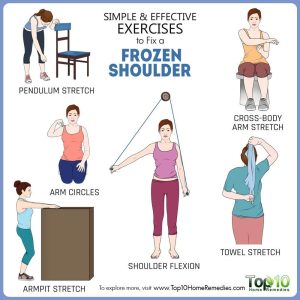
As we age, maintaining cardiovascular health becomes even more crucial. Regular exercise can help seniors prevent and manage cardiovascular diseases, improve overall well-being, and increase longevity. However, it’s important to engage in safe and effective workouts that are specifically tailored to their needs and physical capabilities. Here are some tips and exercises to keep seniors fit and healthy.
Consult a Healthcare Professional
Before embarking on any exercise regimen, seniors should consult their healthcare provider. A thorough medical evaluation will help determine their current fitness level, identify any underlying health conditions, and ensure workouts are safe and suitable. This is particularly important for seniors with existing heart conditions or other cardiovascular risk factors.
Start Slow and Steady
Seniors should not rush into intense workouts right away. It’s crucial to start slow and gradually build up endurance and strength. Low-impact exercises, such as walking, swimming, and cycling, are great options to begin with. These activities provide cardiovascular benefits without putting excess stress on the joints or heart. Aim for at least 30 minutes of moderate-intensity exercise most days of the week, if possible.
Incorporate Resistance Training
In addition to cardiovascular exercise, seniors should also include resistance training in their workout routine. This type of exercise helps build muscular strength and improves bone density, which is particularly important in preventing falls and fractures. Using resistance bands, light weights, or weight machines can help enhance upper body and lower body strength. It’s crucial to start with manageable weights or resistance levels and gradually increase as tolerated.
Practice Balance and Flexibility
Poor balance and flexibility are common issues among seniors and can increase the risk of falls, injuries, and limited mobility. Specific exercises, such as yoga or tai chi, can help improve balance, flexibility, and overall body coordination. These activities also promote relaxation and mental well-being, making them a great addition to any senior’s fitness routine.
Monitor Heart Rate
Seniors should closely monitor their heart rate during workouts. A simple way to determine the appropriate intensity level is to calculate the maximum heart rate by subtracting their age from 220. Most seniors should aim for a target heart rate range between 50% to 70% of their maximum heart rate during exercise. This level is optimal for cardiovascular benefits without overexertion. Investing in a heart rate monitor or using wearable fitness technology can make it easier to track heart rate during workouts.
Stay Hydrated
Proper hydration is crucial during exercise, especially for seniors who may not sense thirst as easily. Aging can affect the body’s ability to retain water, so it’s important to drink fluids regularly, even if not feeling thirsty. Water is the best choice, but if engaging in prolonged or intense workouts, sports drinks can help replenish electrolytes.
Listen to Your Body
Seniors should pay close attention to their bodies and any warning signs during exercise. If feeling dizzy, experiencing shortness of breath, chest pain, or extreme fatigue, they should stop exercising and seek medical attention if necessary. It’s important not to push beyond their limits or ignore potential signs of overexertion or heart-related issues.
Engage in Social Activities
Exercise doesn’t have to be a solo activity. Seniors can benefit from joining group fitness classes, walking clubs, or exercise programs specifically designed for older adults. Not only do these activities provide physical benefits, but they also offer social interaction, mental stimulation, and a sense of community.
Conclusion
Cardiovascular health is vital for seniors, and with the right approach, safe and effective workouts can be incorporated into their daily routine. By consulting healthcare professionals, starting slow, including resistance training and balance exercises, monitoring heart rate, staying hydrated, listening to their bodies, and engaging in social activities, seniors can maintain their cardiovascular health and enjoy all the benefits that come with it.

